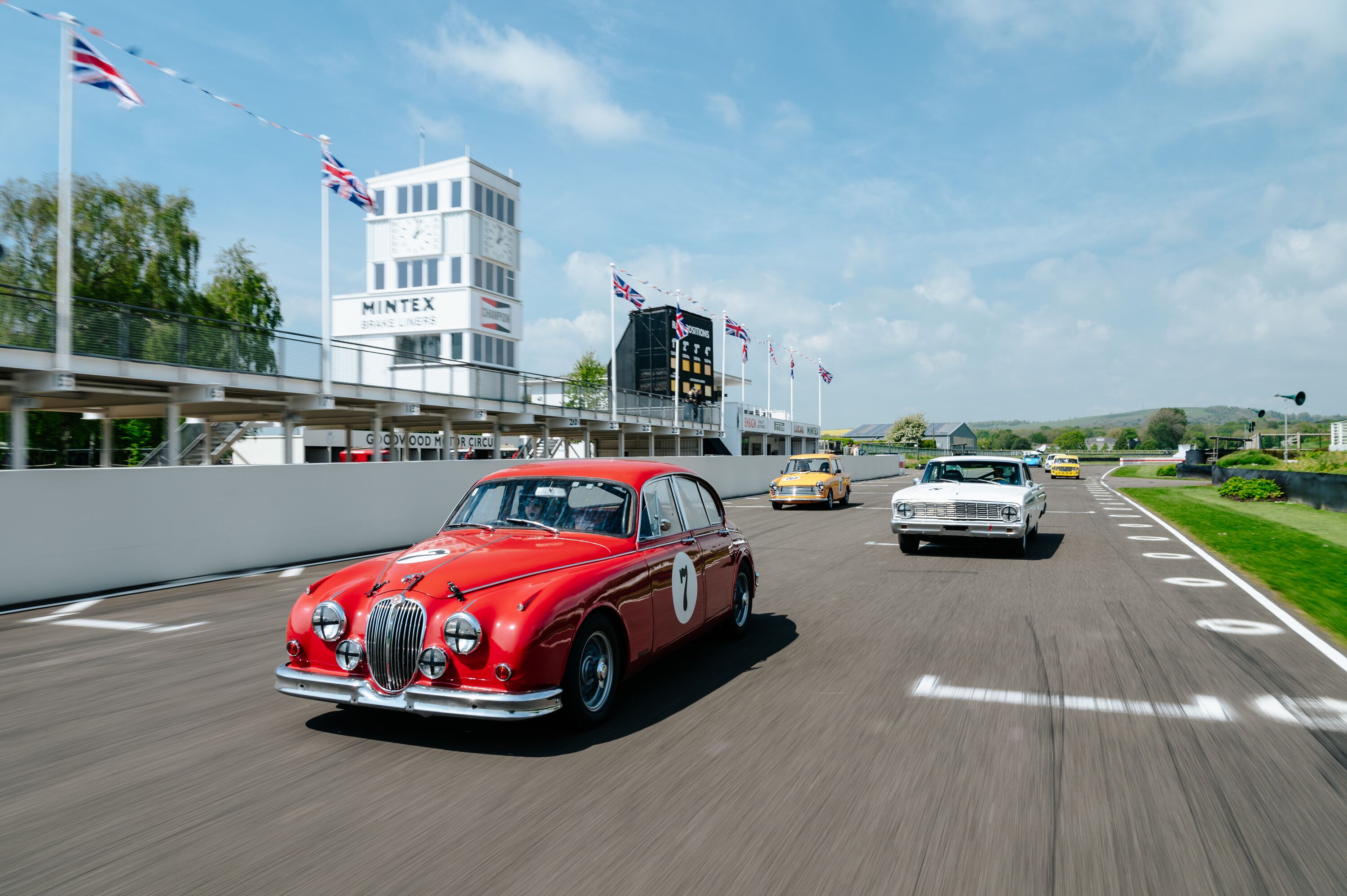The eight best three-spoke alloy wheels
Staying at home during the ongoing pandemic, I am sure I’m not alone in visiting the kettle, biscuit tin and wine rack far more frequently than used to be the case!

I also seem to be spending much more time looking out of the upstairs bedroom windows. One of the static sights from my first floor vantage point is a small group of cars parked-up, most of which haven’t moved for some time now. One of these includes an E46 BMW 3 Series, a green coupe example that I’d not seen locally before, until the lockdown was imposed. The Bimmer seems to be in reasonable order overall, but it is let down considerably by some dodgy non-original alloy wheels. Looking like something bought cheaply from a fire damage sale at an auto accessory shop, the E46 is shod with nasty aftermarket three-spoke alloys (possibly Ronals) that simply don’t suit the car, this being all the more galling as these BMWs were usually fitted with perfectly acceptable factory-fit seven-spoke alloys.
Quite why anyone would choose to replace the OEM alloys with these three-spokers that simply don’t suit the car is beyond me, particularly as secondhand BMW factory alloys can be found for less than the cost of these nasty aftermarket atrocities.
Three-spoke alloy wheels can often look amazing of course, when fitted to car they were specifically designed for, but on this 3 Series (as well as various Golfs, Civics, Skyline GT-Rs and so on that also seem to attract ill-suited none-OEM three-spoke alloys) they really detract from the car’s appearance.
Some three-spoke alloys, originally specified and factory-fitted for selected model derivatives, can appear to be a poor match, such as those fitted as standard on some older Suzuki Jimny and Vitara models, as well as the sportier Volvo S/V40 variants (the latter using an attractive split-spoke design), but a great number of cars really benefit from the inclusion of a well-designed ‘triple spoker.’
Here are nine such cars, eight of them enhanced by a set of thoughtfully-considered three-spoke alloy wheels, plus one that is best forgotten…

Dodge Viper RT/10
Presented at the 1989 Detroit Auto Show as a ‘dream’ concept car, the dynamic Dodge Viper met with such an outstanding response that Chrysler took the bold decision to put the outlandish prototype into low-scale production, despite the Corporation being starved of cash at the time.
The Viper RT/10 gave Chrysler, and its dreary Dodge brand, a much-needed high-profile image boost, with limited production getting underway in late 1991 to satisfy a bulging order book.
As true as possible to the original 1989 prototype, the first production Vipers retained 95 per cent of the concept’s styling and features (including no door locks!), such as the exaggerated and chunky three-spoke alloy wheels, which added to the purposeful sporting character of the V10 sports car. The triple-branch alloys remained on all first-generation Vipers, but were sadly dropped for more conventional multi-spoke wheels when the replacement Viper II SR appeared for 1996.

Saab 900 Turbo
Although Saab could lay claim to creating one of the most distinctive car alloy wheel designs of all time – the iconic ‘Inca’ alloy, as fitted exclusively to all 1977-80 Saab 99 Turbo models – the expired Swedish premium brand quickly became synonymous with three-spoke alloys (along with black coachwork and tail spoilers) for its desirable 900 Turbo models.
A three-door Saab 900 T16 S ‘Combi Coupe’ is one of the great motoring icons of the 1980s, with Saab ‘owning’ triple-spoke alloys and setting a trend that soon spread across the automotive industry globally.
Over the original 900’s long production run, Saab carefully evolved the design of its classic three-spoke alloy, culminating in the more fluid two-tone alloys that were fitted to the final 1992 ‘run out’ editions of the model, such as the highly-sought 900 Ruby T16 S and Scarab Green metallic Convertible. When the ‘classic’ 900 was replaced by the new 1992-93 ‘NG’ model, three-spoke alloys formed a strategic part of the successor’s launch to help emphasis its Saab DNA.

Saab 9-5
By the time the larger 9-5 was introduced in the late 1990s, three-spoke wheel design had become such a strong feature of the Saab brand through the 900 and 9000 that a tempting selection of triple-branch alloys were offered for various versions of the capable new executive saloon and estate range.
Arguably the ‘ultimate’ Saab three-spoke alloy (known internally as ‘The Nail’) was an alluring standard fitment feature of the powerful 9-5 Aero performance models, with the ‘Hammer Head’ (ALU48) alloy (so named because of its design) also being a stand-out triple-spoke wheel. A wide range of official Saab-designed three-spoke accessory alloys were also available to fit to any Saab model, such was the power and popularity of the wheel format for the brand.

Smart Roadster
The Smart Roadster was a fun and frugal 21st century interpretation of the small and affordable Austin-Healey ‘Frogeye’ Sprite, with two targa-top body formats available, a low three-box notchback, and more practical (and stylish) two-box fastback with an opening rear hatch.
Designed by Michael Mauer (now head of design at Porsche), the Roadster ‘borrowed’ some elements of the Saab 900 Combi Coupe, with a similar profile, floor-mounted ignition (the key placed between the seats, just like a Saab), and handsome dual-branch three-spoke alloy wheels for top-line models. The Saab inspirations must have worked as Maurer ultimately left Mercedes-Benz/Smart to briefly head-up the Swedish marque’s styling studio.

Range Rover
Fifty years young this year, the option of alloy wheels was a late addition for the landmark Range Rover, the command-view 4x4 being fitted with distinctive pressed steel wheels only for the first 20 years or so of its 26-year-long career.
Following the late additions of four-doors, diesel engines and other key options, alloy wheels eventually became available for the classic first-edition Range Rover in the early-mid-1980s, these alloys naturally adopting a three-spoke design that was so in vogue (no pun intended!) at the time, with arguably the ultimate Range Rover (a long-wheelbase Vogue) wearing subtle two-tone three-spoke alloys.
Land Rover remained loyal to the triple-branch alloy, offering stylish options (Factory-fit and dealer accessories) for its later Discovery models, as well as subsequent Range Rovers.

Vauxhall Nova (Opel Corsa A)
General Motors Europe was a late arrival to the ‘supermini’ hatchback market, its able but outmoded rear-wheel-drive Vauxhall Nova/Opel Corsa combo appearing in 1983, many years behind their leading front-drive rivals, such as the Fiat 127, Renault 5 and Ford Fiesta.
As the Nova/Corsa ranges inevitably expanded, the sporting model derivatives (SRi and later GTE/GSi) were given well-conceived and stylish three-spoke alloys to help reinforce their ‘hot hatch’ credentials.
The (Ronal-sourced) alloys had the desired impact, even if the performance and lame road manners of these hot hatches failed to match most of the opposition, the GM tiddlers offering more style over substance.

Ford Fiesta RS Turbo
As a wild child conceived in the late 1980s, when Ford launched its fast Fiesta RS Turbo in 1990, it had to be shod with the alloys of the moment, so it chose three-spokes of course as the contemporary ‘performance’ default design.
The RS Turbo’s alloys aped those of the late-1980s Saab 900 Turbo, looking very similar, but a few inches smaller in diameter. Less distinctive than the original Fiesta XR2 ‘pepper pot’ alloys, the Mark 3 Fiesta’s triple-spoke items set the RS Turbo apart from lesser performance Fiesta models, of which there was a wide choice in the early 1990s.

Alfa Romeo MiTo
Think Alfa Romeo alloys and the distinctive ‘telephone dial’ wheels immediately spring to mind, first seen in the mid-1960s GTa and Tipo 33 competition models.
Like many other car brands that we’ve now seen though, even Alfa Romeo couldn’t resist the lure of a well-designed three-spoke alloy wheel. It fitted a very stylish twin-prong triple-spoker to some of its sportier MiTo models, with a polished surface sheen, and a choice of 17-inch or 18-inch rim sizes.

Ford Probe
From the eight stylish three-spoke alloy designs we’ve now seen and admired, we end on one to bring you back down to earth with a bump, lest you’re now itching to get your hands on a set of triple-spokers to fit onto your Mondeo, Polo, 911 or Reliant Robin!
As an example of how not to style a triple-spoke alloy and fit onto a car that they really don’t suit, look no further than the second-generation Ford Probe, an unfortunately-named coupe made in the USA on a Mazda 6 base.
Attempting to follow the three-spoke fashion of the time, Ford created a swirly triple alloy for top-line Probes; the wheel adding little to the (already questionable) appeal of this duff wanna-be Capri successor. A dud wheel for a dud car, but one that is thankfully now all but forgotten.
List
Dodge
Viper
Saab
900
9-5
Smart
Range Rover
Vauxhall
Nova
Ford
Fiesta
Alfa Romeo
Mito
Probe





